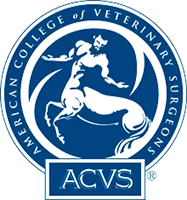CAT & DOG SURGERIES IN PATTERSONVILLE
Specialty Surgery
While all veterinarians may perform cat and dog surgeries as part of their practice, a Diplomate of the American College of Veterinary Surgeons is considered a specialist and has the additional training and expertise to perform more technical and advanced procedures.
We perform all types of veterinary surgery including orthopedic, soft tissue, minimally invasive, oncologic, and neurologic. Call us at (518) 887-2260 to schedule your pet’s procedure today.
Abdominal Surgery
- Adrenalectomy
- Arthroscopy
- Cystotomy
- Herniorrhaphy
- Perineal Urethrostomy
- Splenectomy
Gastrointestinal Surgery
- Cholecystectomy
- Enterotomy
- Gastropexy
- Liver biopsy
- Portosystemic shunt ligation
- Resection/Anastomosis
Head/Neck Surgery
- Brachycephalic airway treatment
- Laryngeal paralysis
- Mandibulectomy
- Maxillectomy
- Parathyroidectomy
- Thoracotomy
- Thyroidectomy
- Total ear canal ablation
- Unilateral arytenoid lateralization
Minimally Invasive Surgery
- Cystoscopy/Urethroscopy
- Endoscopy
- Otoscopy
Neurological Surgery
- Cervical ventral slot
- Dorsal laminectomy
- Hemilaminectomy
- Lumbosacral decompression
- Open biopsy
- Neuro-orthopedic
- Cervical and T-L decompression
- Axial skeleton fracture repair
Oncologic/Cancer Surgery
- Limb-sparing procedures
- Limb amputation
- Tumor removal
Orthopedic Surgery
- Arthrodesis
- Corrective osteotomies
- Femoral head and neck ostectomy
- Femorotibial joint stabilization
- Fracture repair
- Joint repair
- Patellar stabilization
- Stifle
- TTA2
- RUBY
- PGR
Skin/Reconstructive Surgery
- Amputation
- Anal sacculectomy
- Free skin graft
- Mass excision
Thoracic Surgery
- Esophagotomy
- Lung lobectomy
- PDA ligation
- Thoracotomy
Urogenital Surgery
- Cystotomy
- Ectopic ureter repair
- Nephrectomy
- Ovariohy sterectomy
Anesthesia
Each patient is closely monitored during and after surgery to ensure their safety. A sedation protocol is developed for the individual patient, taking into consideration many factors including age, weight, and overall health. All hospitalized patients are cared for overnight by a member of the VSRC team and are never left unattended.
Pain Management
Among the best ways to manage pain is to ‘get ahead of it’, meaning prevent it or by early intervention. Pain management will improve the recovery process, whether from illness, surgery or injury. Best of all, because it reduces stress and increases a sense of well-being, pain management will improve their quality of life.
Many medications come in easily administered forms such as liquids, skin patches or gels. There are also new analgesic (pain-reducing) products to help treat your pet after an injurious trauma or to help treat chronic pain. Nonsteroidal anti-inflammatory drugs (NSAIDS) are often used to treat orthopedic-related pain with minimal side effects. There are several other classes of pain medications and it is important that you talk to your veterinarian about the different medications so that together you can find the best treatment plan for your pet.
Pain management becomes particularly important after surgeries. When recovering from invasive procedures, animals may be not only in pain, but also weak and disoriented. When you’re finally able to bring them home after a procedure, the best thing you can do is consistently follow your veterinarian’s instructions carefully. If your veterinarian prescribes an analgesic for your pet, give it to them as directed. If confinement is prescribed, please adhere to the instructions provided to minimize re-injury and expedite recovery. If any problems should develop, contact your veterinarian immediately.
For more information about our cat and dog surgeries, give us a call at (518) 887-2260.





